Question And Answer
Publications
Articles, publications, books, tools and multimedia features from the U.S. Institute of Peace provide the latest news, analysis, research findings, practitioner guides and reports, all related to the conflict zones and issues that are at the center of the Institute’s work to prevent and reduce violent conflict.
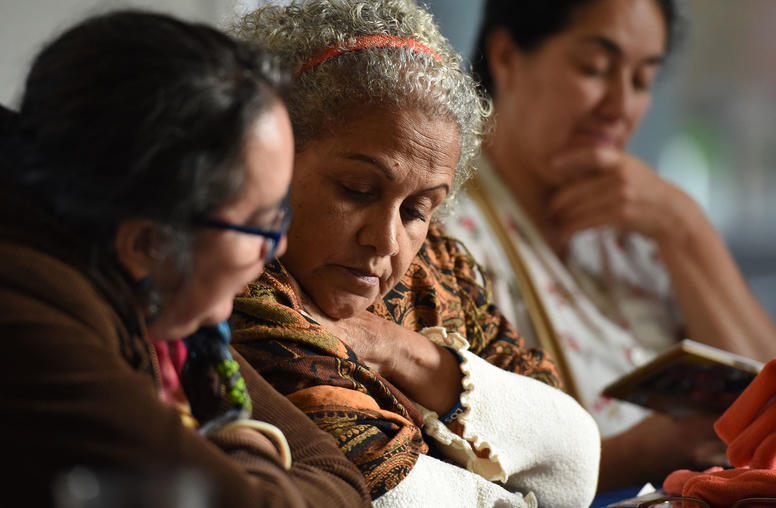
The Essential Role of Women in Peacebuilding
Evidence indicates that women participants in peace processes are usually focused less on the spoils of the war and more on reconciliation, economic development, education and transitional justice – all critical elements of a sustained peace.
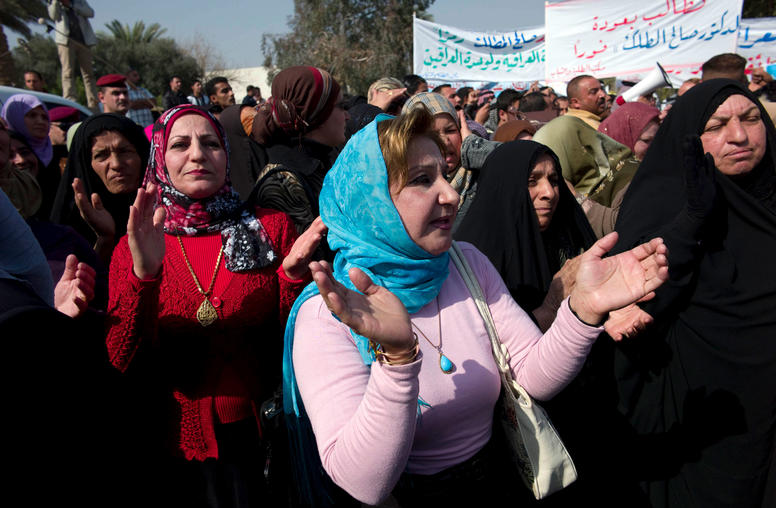
Want Women at Peace Talks? Mandate It
The evidence on ending violent conflict is clear: when women participate in negotiations it helps achieve peace. A study of 182 signed peace accords over two decades showed these accords were 35 percent more likely to last at least 15 years when women were involved. Yet 17 years after the United Nations first called for including women in all peace talks globally, women remain sidelined. The lack of structural incentives for change is the key—until we get the incentives right, exclusion will rule.

Neil Kritz on Hamas and Fatah Pending Agreement
Neil Kritz previews the pending agreement to heal a decade of division between Hamas and Fatah, and explains what effects the reconciliation might have on the larger Middle East Peace Process.
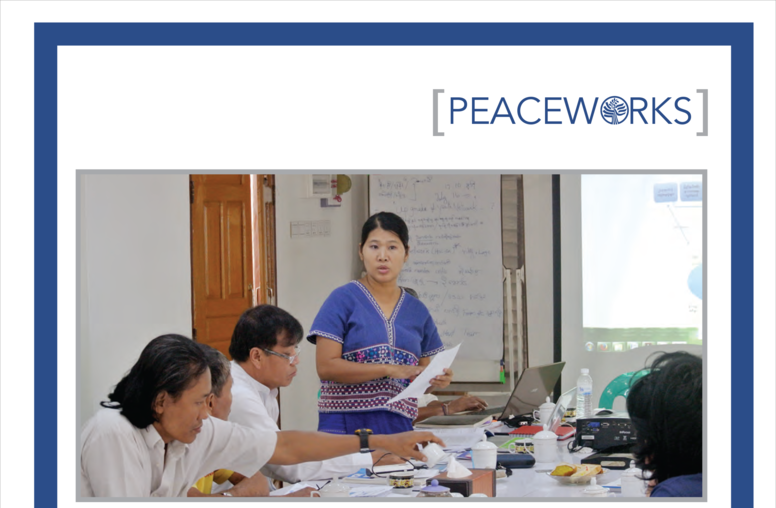
Nonformal Dialogues in National Peacemaking
Nonformal dialogues offer complementary approaches to formal dialogues in national peacemaking efforts in contexts of conflict. As exemplified by the nonformal dialogues in Myanmar, Lebanon, and Nepal examined in this report, nonformal dialogues are able to...
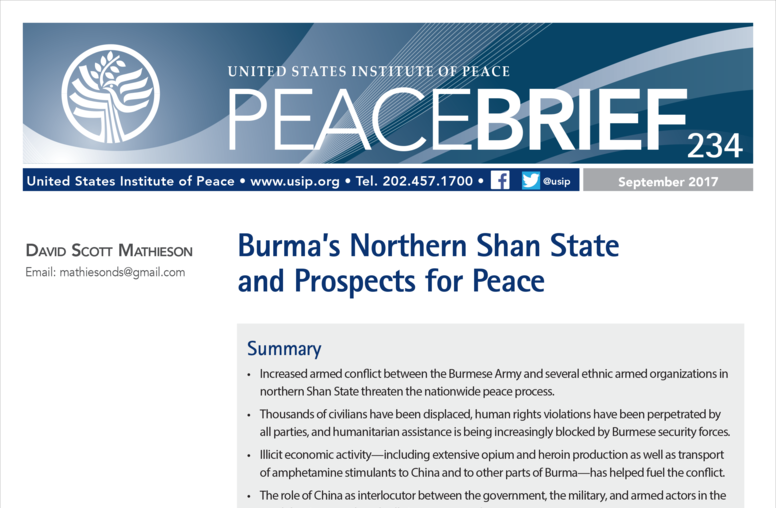
Burma’s Northern Shan State and Prospects for Peace
This Brief focuses on conflict dynamics to provide an overview of resurgent conflict patterns in northern Shan State over the past two years, outlines the armed groups involved, their competing interests, the human rights effects on the civilians in the area, and how the fighting has affected the nationwide ceasefire.
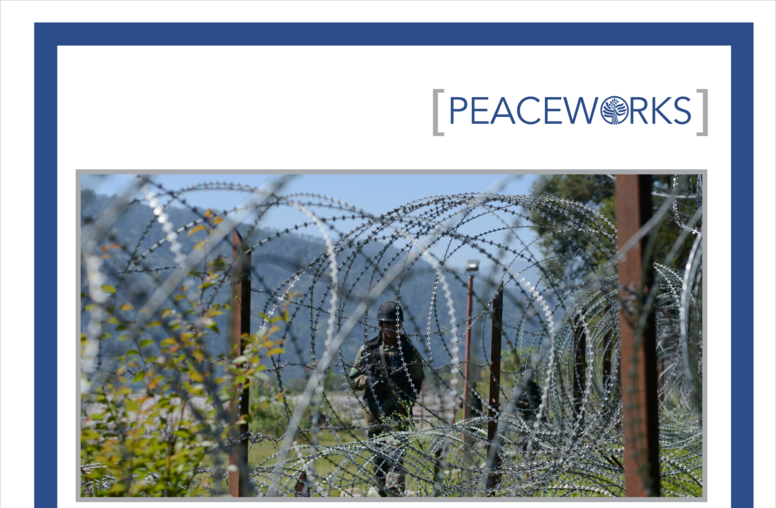
Ceasefire Violations in Jammu and Kashmir: A Line on Fire
Ceasefire violations on the border between Pakistan and India and across the Line of Control in the Jammu and Kashmir region are both a product of broader bilateral tensions and a contributor to them. Drawn on field research and extensive interviews with both Indian and Pakistani officials and senior military figures, this report argues that ceasefire violations are generally not planned, directed, or cleared by higher military commands or political establishments, but are driven by the dynamics on the frontlines. The report explains these factors in context, offering recommendations on what could be done to better manage or even avoid both tensions and escalation of conflict.
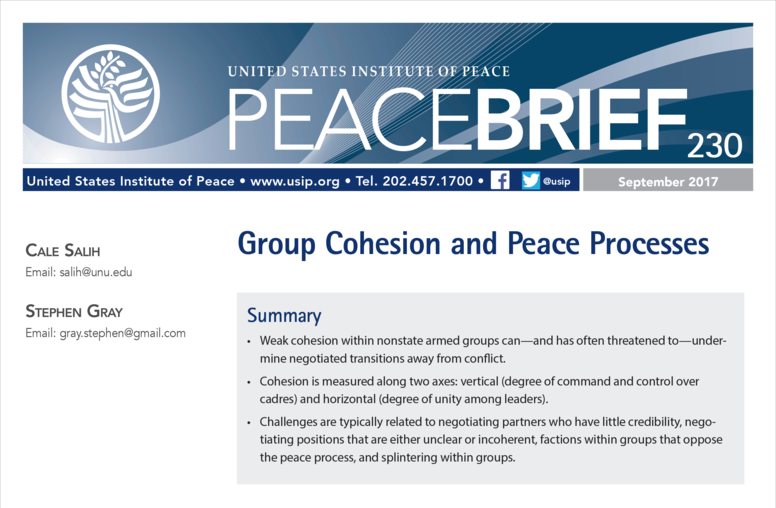
Group Cohesion and Peace Processes
Drawing on a wide range of cases, including Burma, Colombia, Senegal, and Uganda, this Peace Brief discusses the internal cohesion of nonstate armed groups, explains how weak cohesion can undermine a peace process, and offers various strategies that those supporting peace processes can deploy to mitigate such risks.
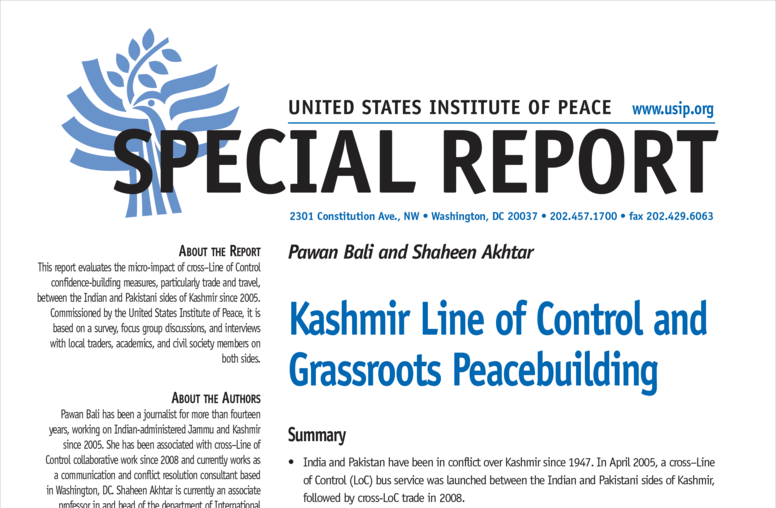
Kashmir Line of Control and Grassroots Peacebuilding
Drawn from interviews, a survey, and focus group discussions, this report evaluates the impact and relevance of grassroots peacebuilding efforts in the region. It reflects only the views of those who have been associated with cross-border trade, travel, and civil society cross-LoC interactions.
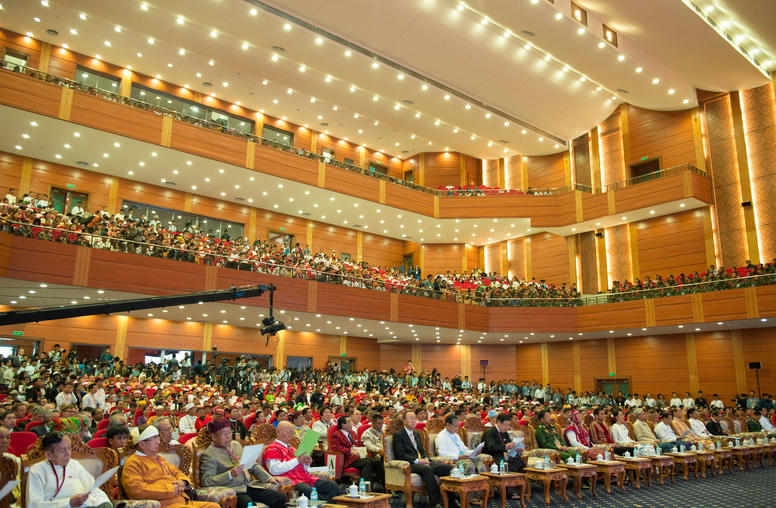
Q&A: What’s Next for Burma’s National Dialogue
Burma's national dialogue, stalled for months, advanced this week with the opening of the second round of the 21st Century Panglong Peace Conference in Naypyitaw, the capital. The five days of political talks focus on working out a federal system to resolve the country’s ethnic tensions.
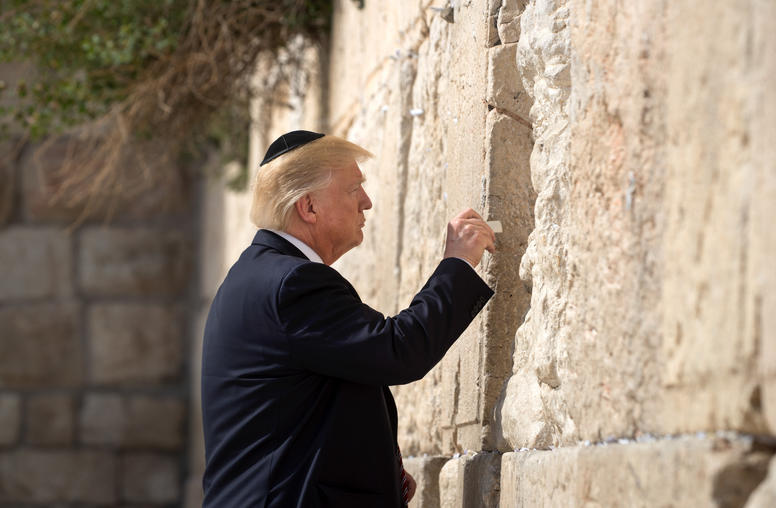
Trump Highlights Religion in Israeli-Palestinian Conflict
With the Israeli-Palestinian conflict a centerpiece of his first official trip abroad, President Donald Trump is staking out some delicate terrain. Unlike his predecessors, Trump has taken the risky step of highlighting the importance of religion to his policy goals with stops in Saudi Arabia, ...